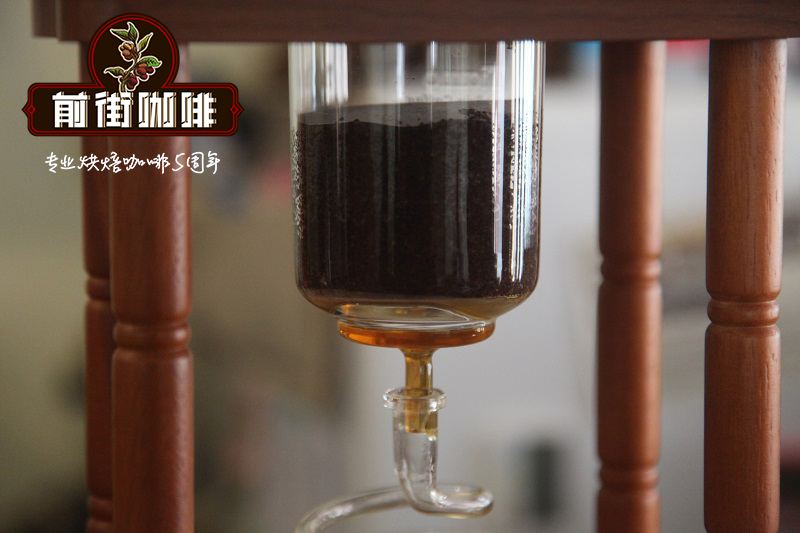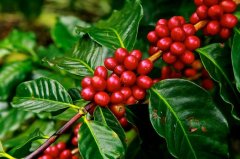What is ninety plus? How about ninety plus coffee? Coffee and raw beans co.

Professional coffee knowledge exchange more coffee bean information please follow the coffee workshop (Wechat official account cafe_style)
After you have a certain understanding of boutique coffee, you will always see a word: 90 +. What is 90 +?
In fact, 90 + is supposed to be ninety plus, which is from a raw bean company! It is the most famous coffee bean production and sales company in the world in recent years. Unlike ordinary cooperatives and traders who have purchased a large number of processed raw beans, Ninety Plus mainly provides rare and unique coffee beans.
What on earth are 90 + coffee beans?
"90 +" does not refer to all coffee with a rating of more than 90 points, it refers to a selection of top coffee series.
They are produced in different manors and have different flavor characteristics. When processing, baristas will separate the coffee one by one according to variety, climate and maturity. They are like works of art that tend to be perfect. Baristas take great pains to give them the best taste and present them in the most perfect posture.
90 +'s pursuit of the ultimate flavor is very admirable, and their sustainable development model and environmental protection operation are also the learning goals of many coffee producers. Since the company was founded in 2006, the young company has made them known to coffee industry people all over the world in just a few years. The coffee series that made its debut in 2007 was immediately regarded as a precious show by coffee experts.
Since 2006, Joseph Brodsky, founder of Ninety Plus, has decided to change the deep-rooted commercial coffee growing model. Ninety Plus sees an opportunity to grow cool and tasty heirloom Isobiya varieties while growing tropical land, while creating a new model to inspire and improve the quality of life of its coffee growers.
The Ninety Plus team currently owns more than 1500 hectares of coffee forest restoration projects in Panama and Ethiopia and has established an international brand to promote the success of a taste-driven model for an eco-and socially oriented agricultural economy.
Joseph Brodsky, the founder of 90 +, discovered early that all the world's high-quality raw coffee beans originated in Ethiopia, and its different flavors of many different varieties are no less than 10, 000 grapes into 1 million different wines.
Ninety percent of the raw beans come from the original varieties of Ethiopia, including Gesha of Manor Panama, which is also transplanted from the original variety of Ethiopian heirloom (Heirloom). The processing process is the specialty of 90 +, which will separate the coffee one by one according to the variety, microclimate and harvest time, and specially design the processing method for each taste to achieve a taste characteristic, just like the big-brand design. Painstaking efforts to complete a handicraft close to art. Natural products go through a lot of refinement and improvement, and finally reach the most beautiful posture before presenting the content to everyone.
In order to ensure quality, 90+ adopts a cooperative model with local manors, with complete control from planting, sampling and harvesting to subsequent processing and cup testing. 90 + exclusive Profile Processing ensures that each coffee bean has a unique and stable flavor trend and quality, while 90 + coffee is unique in the market like premium red wine.
At the beginning, the 90 + company only bought the best quality coffee cherries from Ethiopian coffee farmers, and started with the best ready-made beans, so there were 90 + representative beans: Aricha and Beloya, which became famous in the first world war, but the experimental results were amazing, and the whole boutique coffee circle was shocked by the rich fruit flavor and high texture.
As coffee gradually moves towards the high-price boutique market, 90 + is the first to establish its own raw bean production system-Profile Processing.
Select the potential coffee farmers, set the ideal flavor back to the bean farmers and processing plants according to the current coffee beans, carry out process reengineering, and gradually revise the samples to the original flavor of 90 + by scientific management. but of course, it is necessary to carefully select the one that best meets the setting before it can be produced.
Profile Processing simply means to extend the scope of management upstream, from the varieties, producing areas, climate, planting methods, harvesting and treatment methods of coffee farmers. If you control all of them, you can produce super-high-quality coffee beans according to your own preferences. The reason why the Profile Processing system is so powerful is that it has the technology to control flavor performance in hand, so it can plan and set the highest standards and surpass the general raw bean merchants' chance to select and buy raw beans. The quality exceeding the standard is not luck, but the average standard, which is also the core value that 90 + companies have always adhered to.
The nomenclature of 90 + beans is completely different from that of general boutique beans. First of all, unlike the usual names of producing areas and manors, each bean is named according to its flavor, for example, the famous Nekisse is originally intended to be taken from Shakisso's nectar.
The naming of 90 + usually starts with the concept of flavor, then the name, and then the choice of producing areas and cooperative farms. In this respect, it is very different from the general boutique beans and is a brand with boutique management style.
It is not difficult to find that usually beans have the letters N, H or W, such as Ethiopian Yiagacheffe G3 N, which is commonly seen in the market, where N stands for Natural. H = Honey (honey treatment) and W = Washed (washing). Here, 90 + also has a different view, they think that rather than using the method of treatment to distinguish beans, it should be distinguished by the trend of flavor. Generally speaking, each treatment of beans will have a more representative flavor, such as:
Sun: unrestrained fruit aroma
Honey treatment: the sweetness is outstanding.
Washing: the flavor is cleaner.
However, 90+ believes that sometimes there will be the same flavor trend under different treatments, for example, the flavor performance of beans treated with honey may be similar to that of washed beans, so they have introduced three basic flavor labels of N2, H2 and W2, which are distinguished by the intensity of fruit aroma and taste:
W2: (Low) low fruit tonality, emphasizing brightness, acidity and floral aroma
H2: (Moderate) moderate fruit tonality, emphasizing sweetness, fruit taste (non-aroma) and tea flavor
N2: (High) strong fruit tonality, emphasizing unrestrained flavor, sweet and sour, jam and dried fruit.
In addition to investigating wild varieties from local sources and finding a good source of beans, we roll up our sleeves and work with local farmers to continue the process of sampling and harvesting, and explore carefully until we find the most perfect way to deal with it. start with the stability of quality control, start with in-depth understanding, improvement and management, and have a 134-hectare coffee farm in Panama. With such details, the coffee with the best flavor in the world has also created an international reputation for high-quality coffee beans.
Important Notice :
前街咖啡 FrontStreet Coffee has moved to new addredd:
FrontStreet Coffee Address: 315,Donghua East Road,GuangZhou
Tel:020 38364473
- Prev

Luckin Coffee officially spun off "Little Deer Tea", Xiao Zhan endorses the third and fourth tier market!
Professional coffee knowledge exchange more coffee bean information please follow the coffee workshop (Wechat official account cafe_style) Luckin Coffee announced in Beijing, the flag sub-brand Xiao Lu Tea officially independent operation, including the opening of independent offline stores, online APP and Mini Program, tea categories will quadruple to more than 30, and hire popular star Xiao Zhan as the brand image spokesman, with
- Next

2019 the price of robusta coffee beans plummeted, near a nine-year low
Professional coffee knowledge exchange more coffee bean information Please follow the coffee workshop (Wechat official account cafe_style) under the pressure of oversupply and the depressed exchange rate of Brazil Lille, the futures price of robusta coffee beans (Robusta), which is mainly used for instant coffee, fell on the 6th, close to a nine-year low, and has fallen 4.8% this week. New York Intercontinental Exchange (ICE) Robbs
Related
- What brand of black coffee is the most authentic and delicious? what are the characteristics of the flavor of the authentic Rose Summer Black Coffee?
- Introduction to the principle and characteristics of the correct use of mocha pot A detailed course of mocha pot brewing coffee is described in five steps.
- Which is better, decaf or regular coffee? how is decaf made?
- How much is a bag of four cat coffee?
- How about four Cat Coffee or Nestle Coffee? why is it a cheap scam?
- Which is better, Yunnan four Cats Coffee or Nestle Coffee? How about cat coffee? is it a fake scam? why is it so cheap?
- How about Cat Coffee? what grade is a hoax? which instant coffee tastes better, four Cat Coffee, Nestle Coffee or G7 coffee?
- Process flow chart of coffee making-Starbucks coffee making process what coffee tastes good at Starbucks
- The top ten best coffee beans in the world Rose summer coffee or Tanzanian coffee tastes good
- Yunnan four cat coffee is good to drink?_four cat coffee is a big brand? four cat blue mountain coffee is fake?

